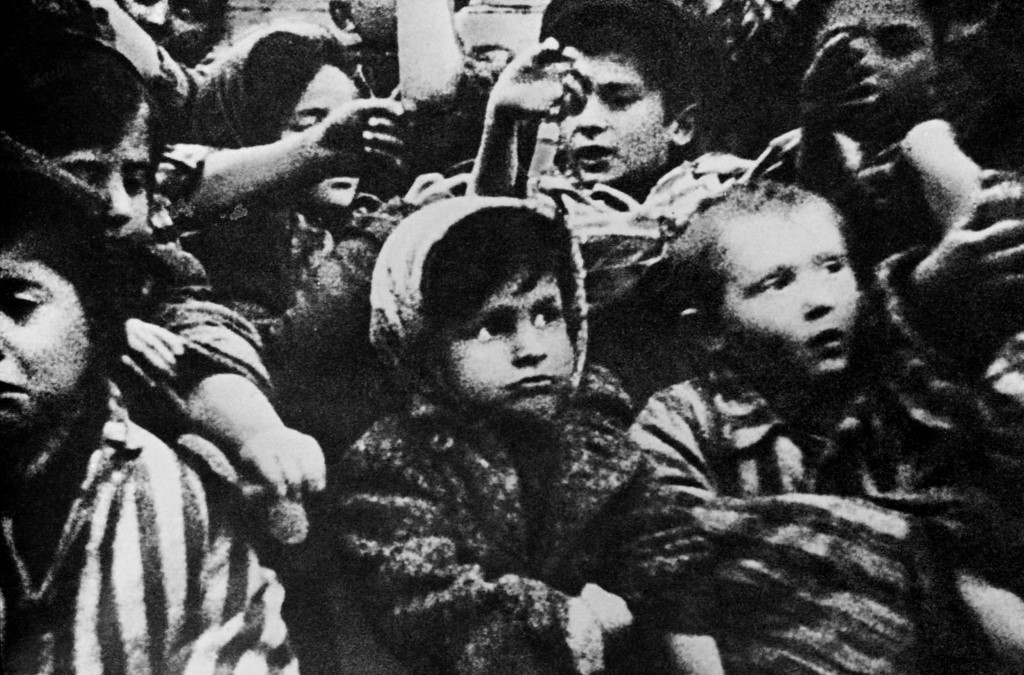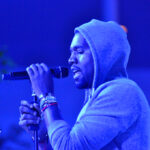Culture, Historical Essays
Anti-Semitism is surging–and young people are forgetting the Holocaust
Walking through Brussels with my family, my young children wondered what the stones meant and asked me to read them. They asked questions. They have all the same last names, Daddy. Were they a family? Were they all killed? Why? We also passed graffiti sprayed onto the walls of dozens of buildings with other slogans: Free Gaza. Free Palestine. Most of the shops on the street where we live feature Palestinian posters showing a triumphant Islamic militant, fist raised, silhouetted against the Dome of the Rock on the Temple Mount in Jerusalem. This has contributed to what the mayor of Brussels has called an “unbearable” spike in antisemitism in the city—the Union of Jewish Students of Belgium told him recently that they are “scared to death.”
The atmosphere across the West has given this year’s International Holocaust Remembrance Day a particular urgency, especially as it is accompanied by a sinister surge of Holocaust denial and general ignorance. A recent YouGov poll—which I will admit I find genuinely difficult to believe—reported that nearly a quarter of Americans under 30 believe the Holocaust is ‘a myth.’ A fifty-state survey in 2020 indicated that 1 in 10 respondents could not recall having heard the word ‘Holocaust,’ and 63% of millennials and Gen Z were unaware that six million Jews were murdered, with over half thinking the total was less than two million. Almost half of American respondents could not name a single concentration camp or ghetto.
Europe isn’t much better. According to Le Monde, 54% of Dutch people are unaware that six million Jews died in the Holocaust; a third of 25-35-year-olds don’t know that Anne Frank, one of the most famous Dutch citizens of the 20th century, died in a concentration camp; and 23% of millennials “think the Holocaust is a myth or has been exaggerated.” In France, 57% of respondents didn’t know six million Jews were killed, rising to 69% of millennial and Gen Z respondents. A full quarter of millennials “have not heard, or don’t think they have heard, about the Holocaust.” Almost half of Britons didn’t know how many had been murdered; one in twenty do not believe it happened; and 8% said it had been “exaggerated.”
This astonishing ignorance is unfolding in the context of renewed attacks on Jewish communities across the West and largely Muslim demonstrators joyfully celebrating the October 7 attack by Hamas terrorists on Israeli civilians—the largest mass killing of Jewish noncombatants since the Holocaust. Holocaust memorials have been vandalized. The fears of Jewish communities are exacerbated by the realization that progressive academics and others will, in many cases, openly side with terrorists and justify rape, torture, and murder in the name of ‘decolonization.’ Influencers with millions of followers claim that it is actually the Jews themselves who are guilty of genocide and other crimes. Indeed, 19% of respondents in New York—the state with the largest Jewish population—told pollsters that the Jews actually caused the Holocaust.
The day is coming when none are left alive who hold the Holocaust in living memory. According to a report published by the Conference on Jewish Material Claims Against Germany this month, the number of living survivors has halved since 2000, with “at most about 272,000 Holocaust survivors still alive, nearly all of whom were children when the genocide ended.” When the last one passes on, the Holocaust will pass from living memory and instead belong to our collective historical memory. But what is so jarring and unexpected is that, based on polls from most Western countries, the Shoah is fading from the collective memory of the younger generations even before the last survivor has left us.
How is this happening despite herculean efforts from Holocaust educators, a steady stream of popular films and novels dealing with the subject, and many powerful books for children and young people? One reason, according to experts, is the shrinking pool of survivors. Personal testimonies have the most effective impact in classrooms, lecture halls, or public events, and many of those who were willing to tell their stories have died. I’ve interviewed several survivors, and most—including Leon Leyson, who was at the time the youngest surviving Jew on Schindler’s list—are now gone. With their departure, the living link between generations is visibly fraying. Most children will never hear a survivor speak.
The state of public education also plays a role. While it is true that upcoming generations are shockingly ignorant about the Holocaust, they are similarly ignorant about history in general. As of June 2022, there are laws requiring Holocaust education in thirteen countries, including Austria, France, Germany, Hungary, Israel, the Netherlands, Poland, the UK, and Canada (where one in five young people either hasn’t heard of the Holocaust or isn’t sure what it is). In the U.S., only some states mandate Holocaust education, and ignorance is the norm. The Council of Europe Committee of Ministers adopted a formal ‘recommendation’ calling on the organization’s 46 member states to “promote teaching and learning about the history of the Holocaust and to pass on remembrance,” but the antisemitism that seems to sleep lightly beneath the surface of Western societies has only metastasized since then.
Social media is also part of the problem. One survey indicates that “about half of millennial and Gen Z respondents have seen Holocaust denial or distortion posts online,” while “56% reported having seen Nazi symbols on social media or in their communities within the past five years.” I’ve seen plenty of antisemitism on social media this afternoon, and the past few months have been frankly horrifying in both the volume and vitriol of Jew-hatred, which seems to be losing its stigma. With the collapse of trust in institutions and the adoption of a hermeneutic of suspicion towards all ‘official narratives,’ Holocaust deniers have fertile ground for poisonous conspiracy theories.
Online influencer and accused rapist Andrew Tate, who boasts an audience of millions of young men, tweeted just this week that since the establishment has “lied to us about Gaza and Israel,” perhaps “they lied about ww2.” (He doesn’t say who “they” are, and he doesn’t have to.) “Im [Sic] just asking a very simple question. Do you think the version they’ve told you is the truth? Do you care enough to find out? Considering ww2 was such a large cultural event its [Sic] still used to this day to psyop the populace. Bad guy=Nazi. I think you should at least understand why the war really happened.” Combine the previously cited level of Holocaust ignorance with the collapse of social trust and social media, and it would be very unwise to underestimate what Tate is doing here.








